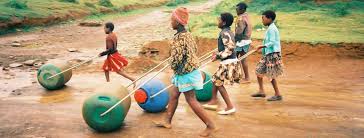
Breaking News
 Who Is ?@NickShirley?? | PBD Podcast | 710
Who Is ?@NickShirley?? | PBD Podcast | 710
 20 Cozy Ways to Celebrate New Year's Eve at Home
20 Cozy Ways to Celebrate New Year's Eve at Home
 The methylation switch: Scientists identify diet that can turn back the cellular clock
The methylation switch: Scientists identify diet that can turn back the cellular clock
 Americans are slaves for the wealthy elite's that write legislation along side corporations...
Americans are slaves for the wealthy elite's that write legislation along side corporations...
Top Tech News
 Laser weapons go mobile on US Army small vehicles
Laser weapons go mobile on US Army small vehicles
 EngineAI T800: Born to Disrupt! #EngineAI #robotics #newtechnology #newproduct
EngineAI T800: Born to Disrupt! #EngineAI #robotics #newtechnology #newproduct
 This Silicon Anode Breakthrough Could Mark A Turning Point For EV Batteries [Update]
This Silicon Anode Breakthrough Could Mark A Turning Point For EV Batteries [Update]
 Travel gadget promises to dry and iron your clothes – totally hands-free
Travel gadget promises to dry and iron your clothes – totally hands-free
 Perfect Aircrete, Kitchen Ingredients.
Perfect Aircrete, Kitchen Ingredients.
 Futuristic pixel-raising display lets you feel what's onscreen
Futuristic pixel-raising display lets you feel what's onscreen
 Cutting-Edge Facility Generates Pure Water and Hydrogen Fuel from Seawater for Mere Pennies
Cutting-Edge Facility Generates Pure Water and Hydrogen Fuel from Seawater for Mere Pennies
 This tiny dev board is packed with features for ambitious makers
This tiny dev board is packed with features for ambitious makers
 Scientists Discover Gel to Regrow Tooth Enamel
Scientists Discover Gel to Regrow Tooth Enamel
 Vitamin C and Dandelion Root Killing Cancer Cells -- as Former CDC Director Calls for COVID-19...
Vitamin C and Dandelion Root Killing Cancer Cells -- as Former CDC Director Calls for COVID-19...
This Invention Is Helping To Solve The Water Crisis In The Easiest Way

It may be difficult to imagine but all over the world, people are struggling to not only gain access to water because of the global water crisis but also to transport any water they can access.
The Hippo Water Roller was designed to alleviate the daily struggle of women and children, the primary water-retrievers, by helping them to more easily transport more water than they can usually carry in one trip.
A typical trip to collect water results in women and children carrying 20 Liters of water on their head each time. The Hippo Water Roller allows them to either push or pull up to 90 Liters at a time.
The water is contained in a drum attached to a steel clip handle that is easily maneuvered by anyone using it.
Not only does it prevent injuries from occurring because water is no longer being balanced on a person's head, the fact that it collects nearly five times more than usual allows women and children more time in the day for other tasks.

Credit: Hippo Roller
Women can spend more time at home attending to household affairs or working at a job; and children can use the extra time to attend school. More time can also be spent on food productivity and processing for farm households.
Former South African president Nelson Mandela personally endorsed the project and appealed to the private and corporate sectors to support and fund it. He spoke of the project, saying,
"A personal appeal is made to your organization to actively support a national project which will positively change the lives of millions of our fellow South Africans."



